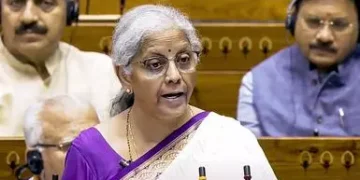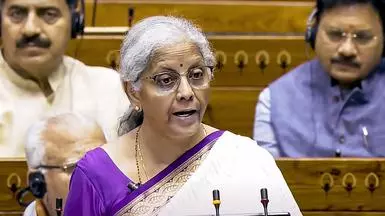DBT Bureau
Bengaluru, 23 July 2024
Union Budget 2024 has taken several big moves for boosting employment through skill-based training. Its focus on investment in infrastructure continues.
Leaders of various sectors reacted to the Union Budget pronouncements in different ways. Here is a list of those reactions.
L&T Technology Services’ CEO, Amit Chadha:
We welcome the Union Budget FY25 announcement by Finance Minister Nirmala Sitharaman, which presents a holistic approach to boosting employment, skilling, and infrastructure development. The allocation of ₹2 lakh crore towards employment and skilling schemes, coupled with groundbreaking initiatives for women empowerment and an ambitious internship program, will create a robust talent pipeline vital for the industry. The reduction in corporate tax rates, alongside the substantial Rs 11 lakh crore allocation for capital expenditure, reflects a favourable pro-business environment that will drive innovation and attract investments. As an ER&D services company, we are particularly excited about the focus on digital public infrastructure and the establishment of the ‘Anusandhan National Research Fund’. These initiatives will foster a culture of innovation and elevate India’s position in the global R&D landscape. Additionally, the development of investment-ready industrial parks promises to create new opportunities for technological advancements.
LTIMindtree’s CEO, Debashis Chatterjee:
The Union Budget 2024 – 25 is a significant step towards realizing the vision of a Viksit Bharat. The government’s comprehensive approach, encompassing skilling, infrastructure development, and digital transformation, is truly commendable. The budget’s emphasis on fostering a skilled workforce through initiatives such as the comprehensive internship program is particularly noteworthy. Moreover, the specific focus on enhancing women’s participation in the workforce through the establishment of working women hostels, creches, and women-specific skilling programs is a progressive step. These initiatives will not only empower women but also contribute significantly to the socio-economic development of the country.
Happiest Minds Technologies’ MD & CFO, Venkatraman Narayanan:
The Union Budget’s emphasis on employment, skilling, and digital infrastructure marks a transformative moment for the IT and ITES sectors. The allocation of Rs 1.48 lakh crore for these categories, coupled with the PM Package comprising five key schemes, underscores the government’s commitment to building and nurturing a skilled workforce, which is indispensable for our industry. The revised skill loan scheme and the comprehensive internship program will provide young talent with invaluable exposure and opportunities, creating a pipeline of skilled professionals. The focus on digital public infrastructure and innovation by the private sector is a welcome move, poised to enhance productivity and create new business opportunities.
Flexiloans’ Cofounder, Ritesh Jain:
Budget 2024-25 presents a promising outlook for the fintech lending industry and MSMEs alike. The introduction of a credit guarantee scheme specifically for the manufacturing sector marks a significant stride. This scheme aims to facilitate term loans for MSMEs to acquire machinery and equipment without requiring collateral or third-party guarantees. Such initiatives are poised to enhance productivity and competitiveness within the manufacturing sector, thereby opening up new growth avenues for fintech lenders. A standout initiative is the doubling of Mudra loan limits from Rs 10 lakh to Rs 20 lakh. This substantial increase provides MSMEs with greater access to credit, empowering them to expand operations and pursue growth opportunities. By broadening the financial horizon for small businesses, this move promises to catalyze economic development at the grassroots level.
Microsoft India & South Asia’s President, Puneet Chandok:
The Union Budget and Economic Survey’s emphasis on technological innovation and digitization sets India on the fast track to becoming an ‘AI-first nation,’ opening new opportunities for collective and inclusive progress from commerce to communities. Leveraging a digitized economy and an AI-ready workforce aligns well with the budget’s priorities towards employment & skilling, innovation, research & development, and productivity & resilience in agriculture.
CSM Tech’s Founder & CEO, Priyadarshi Nanu Pany:
The Budget’s focus on MSMEs reflects a nuanced understanding of the sector’s challenges and potential. The multi-pronged approach addresses critical pain points while fostering innovation and growth. The credit-centric measures—including the new guarantee scheme, stress-period support, and the digital footprint-based assessment model could revolutionize MSME financing. By reducing reliance on collateral and traditional metrics, these initiatives promise to unlock capital for a broader spectrum of enterprises, potentially catalyzing growth and job creation. The expansion of TReDS and SIDBI’s reach demonstrates a commitment to improving liquidity and financial inclusion across MSME clusters. Meanwhile, the focus on food safety and e-commerce export hubs signals a push towards quality improvement and global market access—critical for the sector’s long-term competitiveness.
However, the efficacy of these measures will hinge on implementation. The success of the digital assessment model, for instance, will depend on the robustness of the underlying algorithms and data infrastructure. Overall, these provisions represent a significant step towards modernizing and strengthening the MSME ecosystem. If executed effectively, they could drive substantial economic value, fostering innovation and enhancing India’s position in global value chains.
Skye Air Mobility’s CEO, Ankit Kumar:
The budget presents big opportunities in agriculture, infrastructure, and deep tech sectors. The focus on boosting agricultural productivity is likely to drive the use of drones for crop surveying, precision spraying, and monitoring. This could transform farming, increase yields, and reduce resource waste. The budget’s emphasis on the deep tech sector is seen as a boost for innovation in drone technology. This could lead to advancements in AI, machine learning, and IoT integration with drones, enhancing their capabilities and expanding their uses. One of the most exciting prospects is using drones for transporting perishable goods. The industry expects that drone technology could cut perishable wastage by over 50%, tackling a major issue in India’s agricultural supply chain.





















